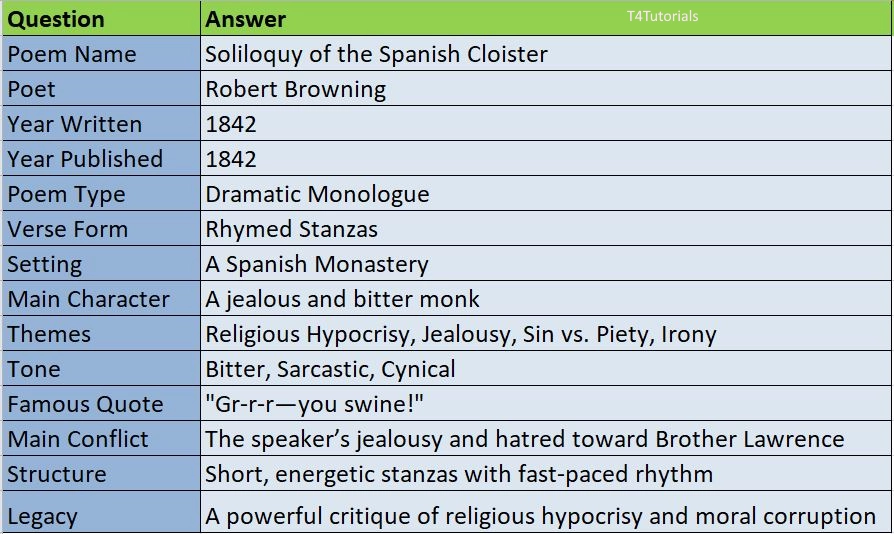Summary:
Robert Browning’s “Soliloquy of the Spanish Cloister” is a dramatic monologue written in 1842, featuring a bitter and jealous monk who despises his fellow monk, Brother Lawrence. The speaker, who remains unnamed, mocks Brother Lawrence’s seemingly pious behavior and accuses him of hypocrisy, all while revealing his own sinful and envious nature. Through his sarcastic and spiteful remarks, the speaker exposes the darker side of religious life, where personal rivalries and moral corruption exist beneath a surface of devotion. The poem explores themes of hypocrisy, religious jealousy, and moral corruption, using energetic language, irony, and a dramatic, almost theatrical tone.
10
Score: 0
Attempted: 0/10
Subscribe
| Question | Answer |
| Poem Name | Soliloquy of the Spanish Cloister |
| Poet | Robert Browning |
| Year Written | 1842 |
| Year Published | 1842 |
| Poem Type | Dramatic Monologue |
| Verse Form | Rhymed Stanzas |
| Setting | A Spanish Monastery |
| Main Character | A jealous and bitter monk |
| Themes | Religious Hypocrisy, Jealousy, Sin vs. Piety, Irony |
| Tone | Bitter, Sarcastic, Cynical |
| Famous Quote | “Gr-r-r—you swine!” |
| Main Conflict | The speaker’s jealousy and hatred toward Brother Lawrence |
| Structure | Short, energetic stanzas with fast-paced rhythm |
| Legacy | A powerful critique of religious hypocrisy and moral corruption |